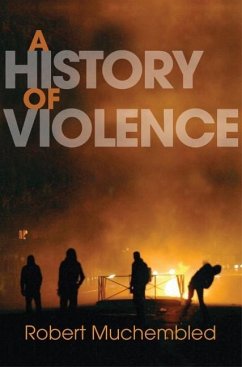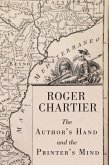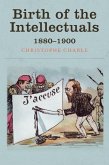Violence is so much in the news today that we may find it hard to believe that it is less prevalent than it was in the past. But this is exactly what the distinguished historian Robert Muchembled argues in this major new work on the history of violence. He shows that brutality and homicide have been in decline since the thirteenth century. The thesis of a 'civilizing process', of a gradual taming, even sublimation, of violence, seems, therefore, to be well-founded.
How are we to explain this decline in public displays of aggression? What mechanisms have modernizing societies employed to repress and control violence? The increasingly strict social control of unmarried, male adolescents, together with the coercive education imposed on this age group, are central to Muchembled's explanation. Masculine violence gradually disappeared from public space, to become concentrated in the home. Meanwhile, a vast popular literature, precursor of the modern mass media, came to play a cathartic role: the duels of The Three Musketeers and the amazing exploits of Fantômas, as described in the new crime literature invented in the nineteenth century, now helped to purge the violent impulses.
And yet we seem, in the first few years of the twenty-first century, to be witnessing a resurgence of violence, especially among the youths of the inner cities. How should we understand this resurgence in relation to the long history of violence in the West?
Hinweis: Dieser Artikel kann nur an eine deutsche Lieferadresse ausgeliefert werden.
How are we to explain this decline in public displays of aggression? What mechanisms have modernizing societies employed to repress and control violence? The increasingly strict social control of unmarried, male adolescents, together with the coercive education imposed on this age group, are central to Muchembled's explanation. Masculine violence gradually disappeared from public space, to become concentrated in the home. Meanwhile, a vast popular literature, precursor of the modern mass media, came to play a cathartic role: the duels of The Three Musketeers and the amazing exploits of Fantômas, as described in the new crime literature invented in the nineteenth century, now helped to purge the violent impulses.
And yet we seem, in the first few years of the twenty-first century, to be witnessing a resurgence of violence, especially among the youths of the inner cities. How should we understand this resurgence in relation to the long history of violence in the West?
Hinweis: Dieser Artikel kann nur an eine deutsche Lieferadresse ausgeliefert werden.
"A vivid, thoughtful, deeply researched exploration of one of the main problems of human societies and a fascinating reflection on the 'extreme plasticity of civilizations'."
Times Higher Education
"This is one of Robert Muchembled's best books, a lucid and persuasive combination of broad sweep with vivid detail and of synthesis with original research."
Peter Burke, University of Cambridge
"In this wide-ranging book, Robert Muchembled, one of France's most talented historians, draws on a lifetime of study to elucidate the history of violence in Europe from the late middle ages to the present. In showing how Western Europe by the twentieth century had achieved the lowest level of interpersonal violence yet known to the world, Muchembled employs modern gender analysis to challenge historians to reconsider many long-held assumptions about the control of violent behaviour in the West."
Julius R. Ruff, Marquette University and author of Violence in Early Modern Europe, 1500-1800
Times Higher Education
"This is one of Robert Muchembled's best books, a lucid and persuasive combination of broad sweep with vivid detail and of synthesis with original research."
Peter Burke, University of Cambridge
"In this wide-ranging book, Robert Muchembled, one of France's most talented historians, draws on a lifetime of study to elucidate the history of violence in Europe from the late middle ages to the present. In showing how Western Europe by the twentieth century had achieved the lowest level of interpersonal violence yet known to the world, Muchembled employs modern gender analysis to challenge historians to reconsider many long-held assumptions about the control of violent behaviour in the West."
Julius R. Ruff, Marquette University and author of Violence in Early Modern Europe, 1500-1800









